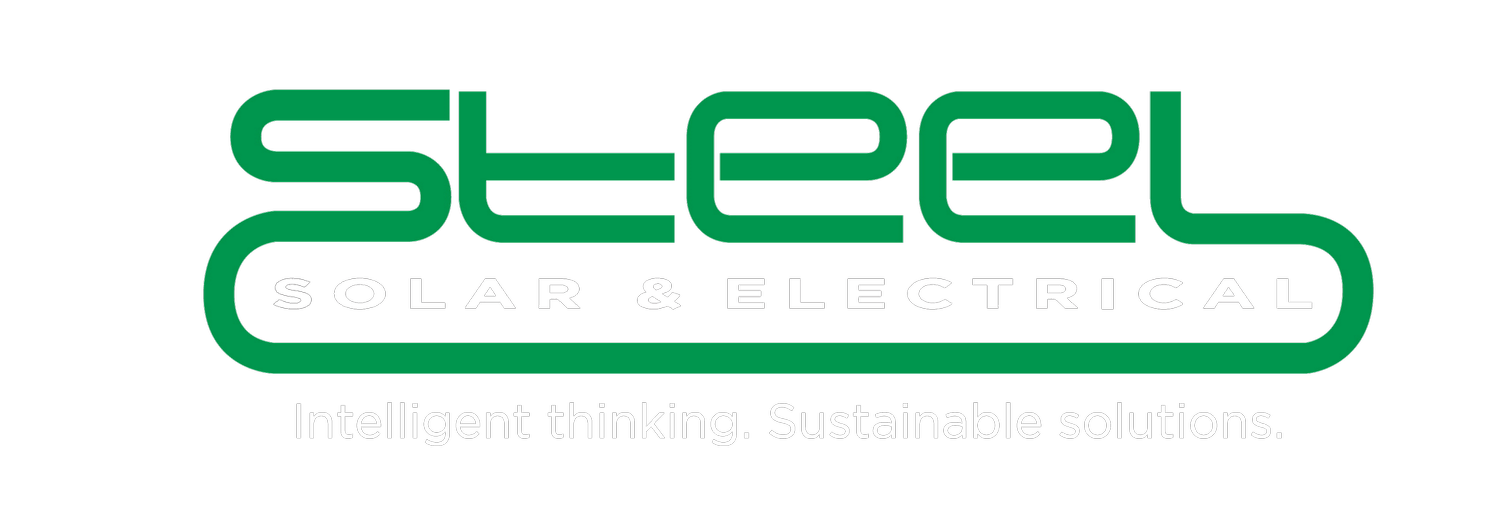Rising energy costs and environmental concerns have people asking, "Is solar power worth it?"
With energy costs on the rise and environmental concerns becoming more urgent, many homeowners and businesses are asking, “Is solar power really worth it?”
The short answer is: it can be—under the right circumstances.
In this blog, we’ll explore the financial, environmental, and lifestyle benefits of installing a solar power system, along with important considerations to help you decide if solar is right for you.
What Is a Solar Power System?
A solar power system converts sunlight into usable electricity. When sunlight hits the solar panels, it generates direct current (DC) electricity. An inverter then converts this DC into alternating current (AC), which powers your appliances and devices. If you include batteries, you can store excess energy for use when the sun isn’t shining, such as at night or during cloudy days.
There are three main types of solar power systems:
Grid-Tied: Connected to the local utility grid. You can feed excess electricity back into the grid and receive credits or payments (depending on your region’s policies).
Off-Grid: Independent from the utility grid, relying entirely on solar panels and battery storage (plus a backup generator in some cases).
Hybrid: A combination of grid-tied and off-grid. You remain connected to the grid but also have battery storage to use solar energy outside of daylight hours or during a blackout.
Financial Benefits of Solar Power
Cost Savings
One of the biggest draws of going solar is the potential for reduced electricity bills. By generating your own power, you’ll buy less (or possibly no) electricity from your local power company. In some areas, you can even earn money by feeding excess energy back into the grid.
Potential for Earning
Certain companies allow you to sell surplus electricity back to the grid. This can create an additional revenue stream or offset your remaining bills.
Return on Investment (ROI)
Solar is often seen as a long-term investment. The average payback period (the time it takes for your energy savings to cover the initial costs) can range from 5 to 10 years, depending on your location, energy rates, and system size. After reaching the payback point, the electricity your panels produce is essentially free, leading to significant lifetime savings.
Environmental Benefits
Switching to solar power means you’re tapping into a clean, renewable energy source, which helps reduce your carbon footprint. Instead of relying on fossil fuels that emit greenhouse gases, solar panels produce minimal emissions once manufactured and installed. By choosing solar, you’re:
Reducing greenhouse gas emissions and air pollution.
Contributing to a sustainable future by conserving non-renewable resources.
Supporting local or national climate goals aimed at reducing reliance on fossil fuels.
Factors to Consider Before Investing in Solar
Upfront Costs
While the long-term benefits can be substantial, the initial investment in solar can be significant. Costs vary based on system size, type (grid-tied, off-grid, or hybrid), and equipment quality. Many homeowners explore financing options such as solar loans. You can find out more about this here.
Suitability of Your Home or Business
Solar isn’t a one-size-fits-all solution. Factors like roof size, angle, and sun exposure can impact how effective your panels will be. Properties with large, unobstructed roof surfaces and minimal shading typically see the highest returns. Don’t forget to consider local climate—while solar can work in cooler or cloudier regions, consistent sunlight yields better performance.
Maintenance Needs
Solar panels generally require minimal upkeep, but they do benefit from regular cleaning to remove dirt and debris. An annual system check ensures your inverter, batteries (if applicable), and wiring remain in good condition. Proper maintenance helps your system deliver maximum power and efficiency over its lifetime.
Are There Any Downsides to Solar Power?
High Initial Investment: Even with incentives, the upfront cost can be challenging for some budgets.
Dependency on Sunlight: Solar panels need sunlight to generate electricity, which can be a limitation during cloudy or rainy periods—though battery storage can help offset this.
Potential Inefficiency Without Maintenance: Dirt buildup and overlooked issues can reduce system efficiency, which is why regular inspections and cleaning are so important.
Who Benefits Most from Solar Power?
Homeowners or Businesses with High Energy Usage: The more electricity you consume, the quicker you can offset your costs.
Areas with High Electricity Costs: Switching to solar in places with expensive grid power rates can provide bigger savings.
Long-Term Residents: If you plan on staying in your property for several years, you’ll have more time to recoup the initial investment and enjoy the financial benefits.
How to Decide if Solar Is Right for You
Conduct a Solar Feasibility Study: Give us a call and we will give you a free assessment of your roof, local sunshine hours, and power bill to see if solar makes sense financially.
Get Quotes and Compare: Different installers may offer varying system designs, warranties, and equipment. Do your research to find the best fit.
Evaluate Your Energy Consumption and Goals: Consider your monthly power usage, budget constraints, and long-term objectives. If reducing your carbon footprint is a priority, solar could be especially worthwhile.
Conclusion: Is Solar Power Worth It?
Deciding whether solar is worth it boils down to balancing financial, environmental, and lifestyle considerations. For many, the potential for significant savings, reduced carbon emissions, and increased property value make the investment worthwhile. However, factors like upfront costs, roof suitability, and funding options can vary widely.
If you’re ready to dive deeper, the next step is to have a chat with us. We can provide personalised advice, system designs, and estimates tailored to your unique situation—ensuring you can make an informed decision that aligns with your goals.
If you’d like to explore your solar options, contact us today to see how quickly solar could pay off for you. Powering your home or business with the sun might just be the best long-term decision you’ll ever make.
